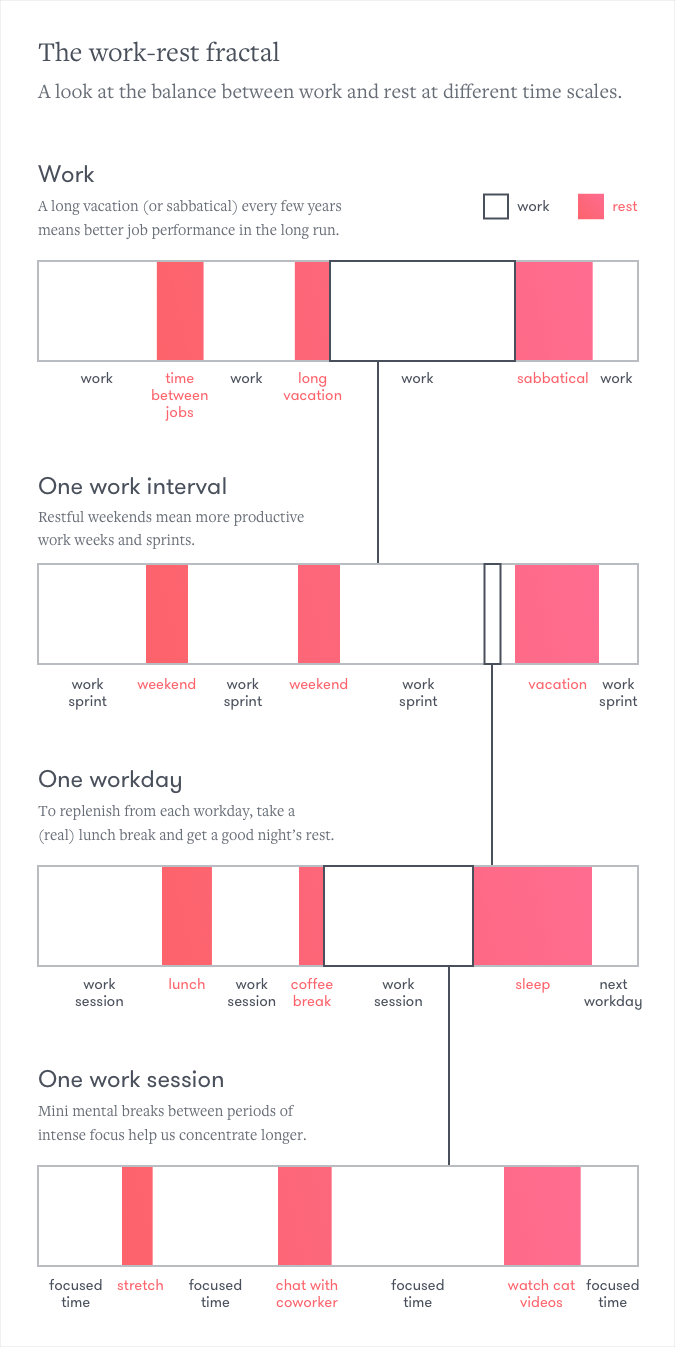The work-rest fractal

Work-life balance is fractal—it’s important to consider at every level.
Recently a company did an internal study showing that their employees were most productive when they took breaks after 52 minutes of focused work. We all take lunch breaks during the day, and the government even mandates that hourly workers are given a short break every four hours. People take a day or two off each week, and several weeks off each year. A longer sabbatical every few years is similarly restorative on an even longer arc (though certainly not available to everyone).

Real work-life balance is best achieved when you take into account all of these time frames, and you trade between them, whether you’re aware of that or not. If you don’t take those breaks after each focused period, you’ll probably start getting distracted more and lose speed. If you skip a weekend, you’ll probably need to take more breaks during each work day. If you don’t take vacations, you’ll start taking even more breaks, or working shorter days. If you don’t compensate at all, you’ll burn out. Maybe not today, maybe not tomorrow, but someday and until you take a real vacation (in proportion to how burnt out you are).
More Issues
